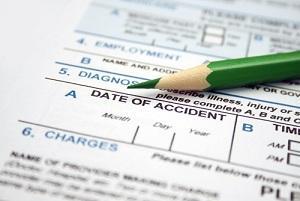Recent Blog Posts
New Research Finds High Punishment Rate in Connecticut
 Around the country, crime rates have dropped to their lowest levels in more than 50 years, yet the rate of imprisonment remains much higher than in previous decades. In addition, a new metric—called the punishment rate—has been developed which make the situation seem even more out of proportion. According to a recent study by a prominent research organization, it would seem that the efforts by Connecticut Governor Dannel Malloy to reform the state’s justice system and focus on rehabilitation are needed more than many may have realized.
Around the country, crime rates have dropped to their lowest levels in more than 50 years, yet the rate of imprisonment remains much higher than in previous decades. In addition, a new metric—called the punishment rate—has been developed which make the situation seem even more out of proportion. According to a recent study by a prominent research organization, it would seem that the efforts by Connecticut Governor Dannel Malloy to reform the state’s justice system and focus on rehabilitation are needed more than many may have realized.
Comprehensive Study
The Pew Charitable Trusts recently released a study conducted as a part of its Public Safety Performance Project. The study sought to examine the way in which crime is dealt with across the nation, based on two separate measurements. While, at first glance, the metrics may seem very similar, they are, in fact, quite different. When used together, they paint a very serious picture about the harsh punitive nature of the American criminal justice system.
Injured Worker Reaches Settlement With College Over On-the-Job Truck Accident
 When you are injured in an auto accident that was not your fault, you may be able to recover compensation for your injuries from the at-fault party. Similarly, when you are injured on the job, you are typically able to collect workers’ compensation benefits, though the available benefits are usually quite different. What happens, however, when the two scenarios are combined, and you are injured in a car accident in the course of your employment? The answer, as you might expect, depends heavily on the exact circumstances of your situation.
When you are injured in an auto accident that was not your fault, you may be able to recover compensation for your injuries from the at-fault party. Similarly, when you are injured on the job, you are typically able to collect workers’ compensation benefits, though the available benefits are usually quite different. What happens, however, when the two scenarios are combined, and you are injured in a car accident in the course of your employment? The answer, as you might expect, depends heavily on the exact circumstances of your situation.
This dangerous combination, along with a few other important legal elements, seriously injured a maintenance worker at Mitchell College in 2012. The case was complex enough to require several attempts at mediation before a settlement was finally reached, netting the injured worker $735,000 in damages, just before a trial was scheduled to begin this month.
Connecticut Supreme Court to Decide If Fourth Amendment Applies Differently to Apartment Dwellers
 In 2013, the United States Supreme Court issued a ruling in Florida v. Jardines, a case that involved the presence of a drug-sniffing dog on the porch of a suspect’s home without a warrant. The dog’s behavior on the porch and around the home suggested to law enforcement officers that there were illegal drugs inside the home. Based on the dog’s alert, the police obtained a warrant, searched the home, and arrested the suspect for marijuana trafficking. In a 5-4 decision, the Supreme Court held that the area “immediately surrounding and associated with home is part of the home for Fourth Amendment purposes,” and that the introduction of the drug-sniffing dog with a warrant based on probable cause was a violation of the owner’s Fourth Amendment rights.
In 2013, the United States Supreme Court issued a ruling in Florida v. Jardines, a case that involved the presence of a drug-sniffing dog on the porch of a suspect’s home without a warrant. The dog’s behavior on the porch and around the home suggested to law enforcement officers that there were illegal drugs inside the home. Based on the dog’s alert, the police obtained a warrant, searched the home, and arrested the suspect for marijuana trafficking. In a 5-4 decision, the Supreme Court held that the area “immediately surrounding and associated with home is part of the home for Fourth Amendment purposes,” and that the introduction of the drug-sniffing dog with a warrant based on probable cause was a violation of the owner’s Fourth Amendment rights.
Precedent for Apartments?
From a practical standpoint, the high court’s ruling in Jardines applies fairly easily to single family dwellings and duplexes that share very little common area. But do the same Fourth Amendment rights apply to those who live in apartments, condos, and other homes with shared hallways and public spaces? In the federal court system, circuits around the country have been divided on the issue, which may be an indication that the U.S. Supreme Court will ultimately need to put the matter to rest. Meanwhile, the Connecticut Supreme Court is expected to rule on a case very similar to Jardines, but that involved a drug-sniffing dog in the common hallway of an apartment building in Hartford County.
Popular Pickup Truck Model Struggles in Crash Tests
 Pickup trucks, sport utility vehicles, crossovers, and minivans comprise a segment of the automobile market known as light trucks which are currently even more popular among new vehicle buyers than cars in the United States. Despite a frequent trade-off in gas mileage compared to cars, consumers continue to choose light trucks for many reasons, including their size, versatility, and visual appeal. Of course, a large number of buyers look at larger vehicles for themselves and their families because trucks generally offer a stronger sense of safety and security to drivers and passengers, especially when involved in an accident. This week, however, crash tests suggest that a well-known and very popular pickup truck did not perform as well as manufacturers may have hoped, raising serious concerns within the automotive industry.
Pickup trucks, sport utility vehicles, crossovers, and minivans comprise a segment of the automobile market known as light trucks which are currently even more popular among new vehicle buyers than cars in the United States. Despite a frequent trade-off in gas mileage compared to cars, consumers continue to choose light trucks for many reasons, including their size, versatility, and visual appeal. Of course, a large number of buyers look at larger vehicles for themselves and their families because trucks generally offer a stronger sense of safety and security to drivers and passengers, especially when involved in an accident. This week, however, crash tests suggest that a well-known and very popular pickup truck did not perform as well as manufacturers may have hoped, raising serious concerns within the automotive industry.
Crash Test Research
D.C. Appellate Judge Finds Firearm Forensic Evidence Flawed
 Earlier this year, a judge from the District of Columbia Court of Appeals wrote an opinion that directly challenged a common practice in criminal courtrooms around the country. Issuing a concurring opinion in the appeal of a murder conviction against a 36-year-old D.C. man, Associate Judge Catharine Easterly wrote that claims by forensic experts that a bullet or shell casing can be unequivocally matched to a particular weapon lack a sound scientific basis and should not be permitted in criminal trials.
Earlier this year, a judge from the District of Columbia Court of Appeals wrote an opinion that directly challenged a common practice in criminal courtrooms around the country. Issuing a concurring opinion in the appeal of a murder conviction against a 36-year-old D.C. man, Associate Judge Catharine Easterly wrote that claims by forensic experts that a bullet or shell casing can be unequivocally matched to a particular weapon lack a sound scientific basis and should not be permitted in criminal trials.
Thousands of Convictions
Anyone with any interest in criminal investigations, including readers of mystery thrillers and those who watch crime scene procedural dramas on television, can probably explain with reasonable accuracy the method used to match a bullet or shell casing to a particular firearm. When a slug or shell is found at the scene of a murder or other violent crime, forensic professionals then look for a suspect weapon. After firing the weapon, the technician compares bullets and shells known to have been fired by the gun with those found at the crime scene. If the markings, scratches, and scrapes on each slug or shell match one another, the technician concludes—and testifies—that they must have been fired by the same gun. Such testimony has contributed to the conviction of countless thousands of violent offenders.
Shared Liability: Multiple Defendants Found Liable for Teen’s $360,000 ATV Accident Verdict
 When you or someone you love has been hurt in a car accident, slip-and-fall accident, or an accident involving recreational equipment, it is important to determine if the actions or negligence of another party contributed to your injuries. If someone else is found to have caused the accident and, therefore, your injuries, he or she may be held liable for the losses you have suffered, including both economic and noneconomic damages. But, what if more than one party shares the blame for the accident? How is each to be held liable for his or her contribution and what if one of those at fault is unable to pay? A recent ruling by a jury in Middletown Superior Court took these questions into consideration as it awarded a teen more than $360,000 from three defendants for injuries sustained in a 2012 ATV accident.
When you or someone you love has been hurt in a car accident, slip-and-fall accident, or an accident involving recreational equipment, it is important to determine if the actions or negligence of another party contributed to your injuries. If someone else is found to have caused the accident and, therefore, your injuries, he or she may be held liable for the losses you have suffered, including both economic and noneconomic damages. But, what if more than one party shares the blame for the accident? How is each to be held liable for his or her contribution and what if one of those at fault is unable to pay? A recent ruling by a jury in Middletown Superior Court took these questions into consideration as it awarded a teen more than $360,000 from three defendants for injuries sustained in a 2012 ATV accident.
Weekend of Fun Turns Dangerous
According to reports, the incident occurred in May 2012, when a teen girl invited three friends to her parents’ ranch in North Branford, all of whom were 15 or 16 years old at the time. As part of the weekend’s fun, the teens went for a ride on a four-wheeled all-terrain vehicle, or ATV, owned by the girls’ parents. The rides went without a problem on Saturday night, but on Sunday morning, two of the boys took the ATV back out again. During the morning ride, the driver began turning tight circles, or "doing doughnuts," and, due to its high center of gravity, the vehicle tipped over and landed on the teen passenger’s ankle. The teen suffered severe lacerations, soft tissue damage, and a torn ligament, which, along with complications in the healing process, led to approximately $100,000 in medical bills.
Reports: State Police Fabricated Reasons to Cite Connecticut Man
 In light of increasing concerns over police violence and the right of the public to film officers as they respond to calls and incidents, very few videos have been made public that provide insight into the discussions between responding officers on the job. Recently, one such video from West Hartford has gained a level of notoriety as a protestor from Connecticut captured a conversation between Connecticut State Troopers as they seemed to fabricate justifications for citing him. Despite promises from the State Police to investigate the matter, there has been no publicized action involving the officers as of yet, and the man is due in court next month in his effort to get his citations dismissed.
In light of increasing concerns over police violence and the right of the public to film officers as they respond to calls and incidents, very few videos have been made public that provide insight into the discussions between responding officers on the job. Recently, one such video from West Hartford has gained a level of notoriety as a protestor from Connecticut captured a conversation between Connecticut State Troopers as they seemed to fabricate justifications for citing him. Despite promises from the State Police to investigate the matter, there has been no publicized action involving the officers as of yet, and the man is due in court next month in his effort to get his citations dismissed.
Open-Carry DUI Checkpoint Protest
The incident arose when 27-year-old man mounted a protest against a DUI checkpoint near an Interstate 84 exit ramp in West Hartford last September. Choosing to exercise both First and Second Amendment rights, the man held a sign warning motorists of the checkpoint and encouraging them to remain silent, while openly carrying a holstered handgun. Connecticut is an open carry state, and the man had both a license to carry and a valid permit for the weapon. Within about an hour, Connecticut State Troopers arrived, secured his gun, and confiscated his video camera. One officer can be seen on the video saying that it is illegal to take his picture. Without realizing that it was still recording, the troopers placed the camera on the roof of a cruiser.
Injured Woman Wins Car Accident Verdict Without Testifying
 In many personal injury cases, the keys to success include calling the right witnesses, providing detailed testimony, and proving your claim with relevant evidence. Knowing what not to say and who should not testify are equally important, but rarely does the situation call for the sole injured party to remain silent. This unusual strategy paid off earlier this year when a Bridgeport jury awarded a car accident victim more than $150,000 in damages without the victim having to speak a single word in proving her case.
In many personal injury cases, the keys to success include calling the right witnesses, providing detailed testimony, and proving your claim with relevant evidence. Knowing what not to say and who should not testify are equally important, but rarely does the situation call for the sole injured party to remain silent. This unusual strategy paid off earlier this year when a Bridgeport jury awarded a car accident victim more than $150,000 in damages without the victim having to speak a single word in proving her case.
Interstate 95 Accident
The case in question involved a 53-year-old woman injured as a passenger in a car crash on Interstate 95 in Bridgeport. She filed claims against both the driver of the car in which she rode and the driver of the other car involved in the accident. The woman was able to reach a settlement agreement with the insurance company of the other driver. She and her attorneys attempted to do the same with the driver of the car she was in at the time of the accident, but the two sides could not reach a compromise, and the case proceeded to trial. Liability was adjudicated by default when the defendant failed to respond to interrogatories, so the amount of damages was the only matter brought before the jury.
U.S. Supreme Court Offers Reprieve to Juveniles Serving Mandatory Life Sentences
 Here in Connecticut, Governor Dannel Malloy has been garnering a great deal of national attention for his work toward marked criminal justice reform. A large portion of his efforts focuses on developing a new approach to rehabilitating juvenile and young adult offenders. The Governor and his supporters believe that the developmental and cognitive differences between younger offenders and adults are significant, and processing defendants of all ages in the same system with the same sentencing standards may be doing more harm than good. Earlier this year, the Supreme Court of the United States issued a decision in recognition of such differences, extending a previous ruling that found mandatory life sentences without parole for juveniles to be unconstitutional.
Here in Connecticut, Governor Dannel Malloy has been garnering a great deal of national attention for his work toward marked criminal justice reform. A large portion of his efforts focuses on developing a new approach to rehabilitating juvenile and young adult offenders. The Governor and his supporters believe that the developmental and cognitive differences between younger offenders and adults are significant, and processing defendants of all ages in the same system with the same sentencing standards may be doing more harm than good. Earlier this year, the Supreme Court of the United States issued a decision in recognition of such differences, extending a previous ruling that found mandatory life sentences without parole for juveniles to be unconstitutional.
No More Automatic Life Without Parole
In 2012, the Supreme Court struck down federal and state laws that require life sentences without the possibility of parole for juveniles convicted of murder. By a 5-4 vote in Miller v. Alabama, the high court established that a young person found guilty of murder could be sentenced to life without parole, but only after careful consideration by a judge or jury of all the relevant factors, including the defendant’s age, maturity, and appreciation of consequences. In the majority opinion, Justice Elena Kagan wrote that, based on individual consideration, "sentencing juveniles to this harshest possible penalty will be uncommon."
Jury Awards Woman $200,000 for Crash Affecting Her Wedding Plans
 "The best laid plans of mice and men often go awry."
"The best laid plans of mice and men often go awry."
You have probably heard this line derived from an 18th century Scottish poem, thanks largely to the 1937 John Steinbeck novel Of Mice and Men. The maxim is meant as a reminder that, even with the best intentions and meticulous planning, occasionally things go wrong. When they do, in some instances, there is little to be done other than to pick up the pieces and move on, making the best of a bad situation. Other times, plans are upset by the actions or negligence of another, who, depending on the circumstances, could be held responsible for such actions under the law. Such was the case in a Rockville courtroom, where a jury found in favor of a woman whose wedding was delayed following an auto accident which greatly affected her health and well-being.
Uncertainty Regarding Injury
In late 2012, the woman was injured in a motor vehicle accident on Trumbull Highway in Lebanon, Connecticut. The driver of the other vehicle was ticketed for failure to yield the right of way and admitted to police, and eventually in a deposition, that he was at fault for the crash. The woman was taken to the hospital by ambulance where she was diagnosed with a fractured bone in her neck. Doctors, however, were not positive that the fracture was caused by the accident, positing that it could have been a preexisting condition. A specialist subsequently shared the emergency doctors’ uncertainty.






